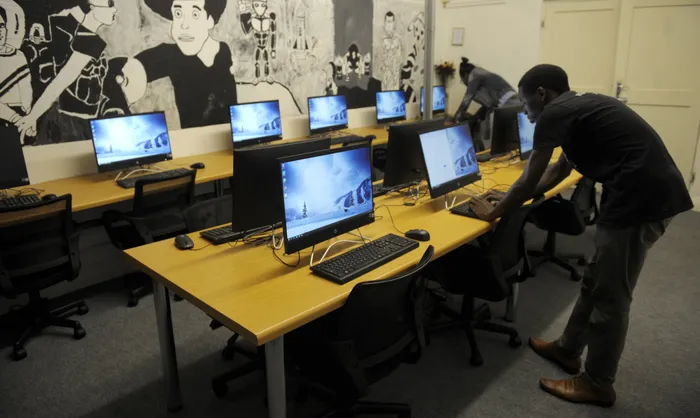Premier Ntuli unveils ambitious five-year plan for KZN's digital transformation

KwaZulu-Natal Premier Thami Ntuli spoke about the province's digital transformation plan at a summit in Durban on Wednesday.
Image: Independent Newspapers Archives
KwaZulu-Natal Premier Thamsanqa Ntuli has outlined an ambitious five-year digital transformation plan with a main goal being “near-universal digital access in public facilities”.
Speaking at the Digital Transformation Summit at Durban’s ICC on Wednesday, Ntuli said the province’s strategy is guided by the principle that technology must serve people, not leave them behind.
“Digital transformation is not a luxury; it is a developmental necessity that must be rooted in ethics, inclusion, and accountability,” he said.
The KwaZulu-Natal Digital Transformation Strategy will be implemented in two phases.
Phase One (2025–2027) will focus on digitising social protection systems to make welfare services faster, fairer, and more transparent. This includes linking social grants to employment and training opportunities “to transform social support into a pathway toward sustainable livelihoods.”
“Technology must be a tool to enhance fairness and efficiency in our welfare system,” he added. “It should help to address fraud and exclusion in programmes such as the R370 Social Relief of Distress Grant, saving public resources while strengthening public trust.”
Phase Two (2028–2030) will expand digitalisation to health, education, and business services, scaling successful innovations across the provincial government.
Ntuli said the roadmap is built on five priorities:
- Expanding digital infrastructure
- Modernising e-government services
- Developing digital skills
- Growing the innovation ecosystem
- Ensuring inclusive access for all
He stated that the government’s goal is expanding digital access in public facilities, connecting up to 90% of schools, clinics, and government offices to broadband.
Other measurable outcomes include a 20–40% increase in digital SME employment, growth in business process outsourcing (BPO), and improved transparency in government systems.
“We must establish KwaZulu-Natal as a national hub for digital skills development,” Ntuli said. “Our goal is to roll out coding bootcamps, digital literacy initiatives, and incubation vouchers for SMEs.”
He urged the private sector to invest in rural broadband and innovation hubs, describing connectivity as “a public good that must reach schools, clinics, and municipal offices across the province.”
Highlighting collaboration as the foundation of the province’s digital vision, Ntuli welcomed Microsoft South Africa CEO Vukani Mngxati, a “proud son of Umlazi Township,” to the summit, calling his leadership “a reminder that inclusive progress begins when opportunity meets talent”.
Microsoft served as the Platinum Sponsor of the summit, joined by Telkom, Huawei, and Vodacom as Gold Sponsors and MTN as Silver Sponsor.
“Digital transformation cannot be achieved by government alone,” Ntuli concluded.
“It requires shared vision, collective investment, and a deep sense of social purpose. Together, let us code, connect, and co-create the digital destiny of KwaZulu-Natal.”